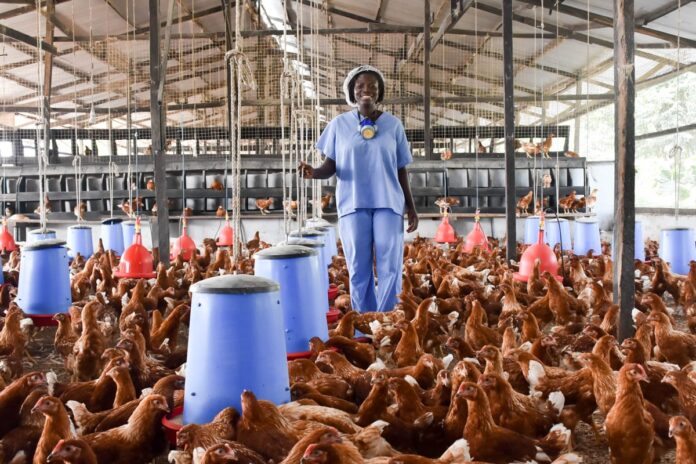The government will, from mid-November 2025, roll out the flagship poultry programme (Nkoko Nkitinkiti) aimed at boosting local production and cutting down on imports.
Under the initiative, about three million chicks will be distributed nationwide in phases by the Ministry of Food and Agriculture.
Each constituency will receive 10,000 birds, meaning about 200 households per constituency will get 50 birds each to rear in their backyards.
Also Read: Chamber of Commerce urges gov’t to consolidate taxes in 2026 Budget
Deputy Minister for Food and Agriculture, John Domelu, speaking on PM Express Business Edition, said the move will create jobs, stimulate interest in the poultry sector, and help reduce Ghana’s dependence on imported poultry products.
He added that the birds will be vaccinated, and beneficiaries will also receive feed support, with ready buyers available to purchase mature birds for processing and packaging.
The first phase is expected to begin by November 15, 2025. The programme is expected to cost the government approximately GH¢200 million.
Currently, Ghana imports more than 80% of its poultry needs, a situation Mr. Eric Opoku, the Minister for Food and Agriculture, described as unsustainable. He expressed optimism that the ‘Nkoko Nkitinkiti’ programme will significantly cut imports and reposition the poultry sector to meet rising domestic demand.
“Ghana consumes a lot of poultry compared to a country like Nigeria. With this initiative, we can change the narrative and stop excessive importation,” he said.
He further noted that cutting poultry imports could also limit the influx of other foreign products, such as tripe, once local production increases.
The Minister maintained that despite challenges such as the impact of illegal mining on arable land, Ghana remains food secure. “We are food secured by all standards,” he stressed.
Mr. Opoku added that the government’s broader agricultural strategy, including support for rice and tomato production, as well as collaborations with processing plants to absorb gluts, would complement the poultry programme and help safeguard Ghana’s long-term food sovereignty.


